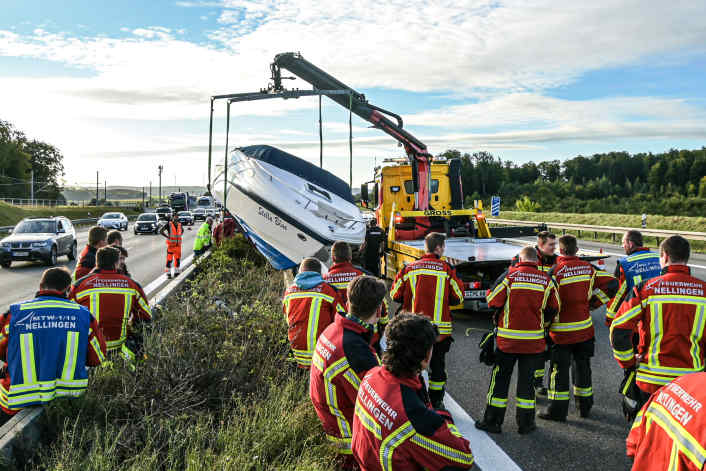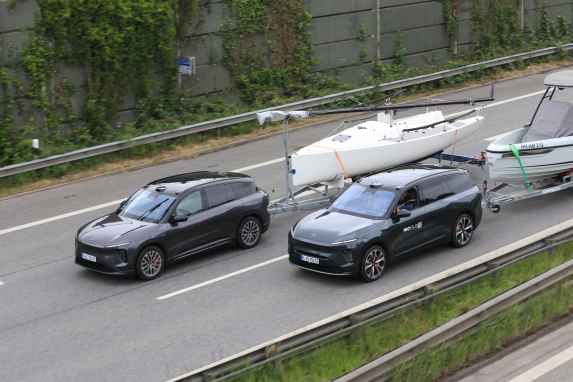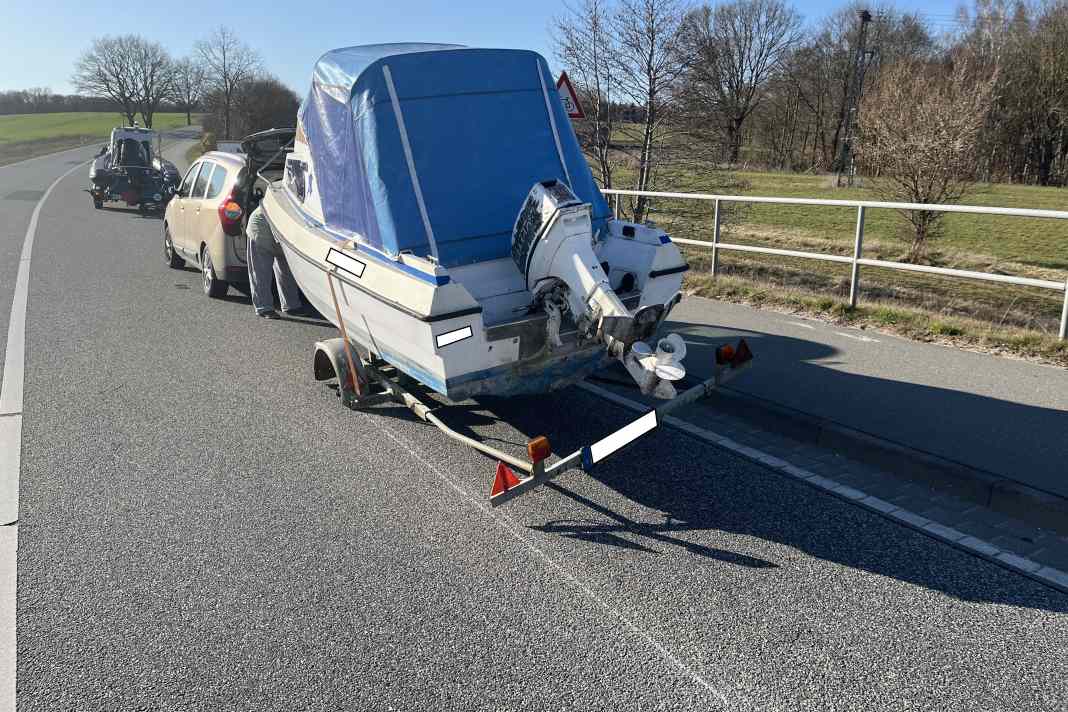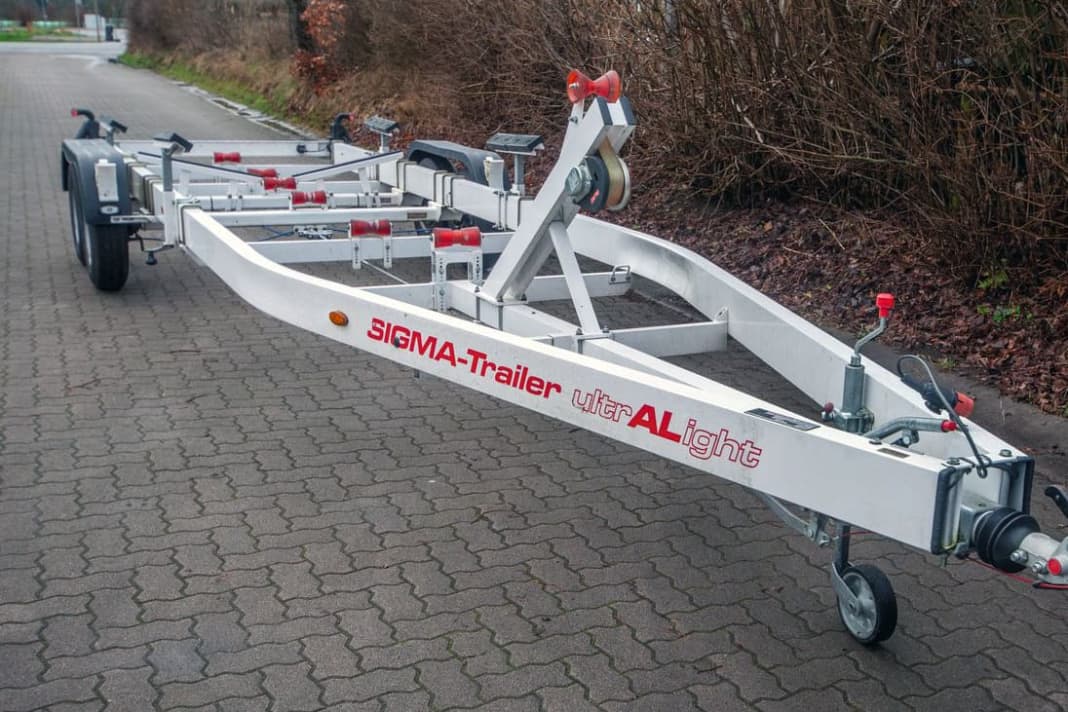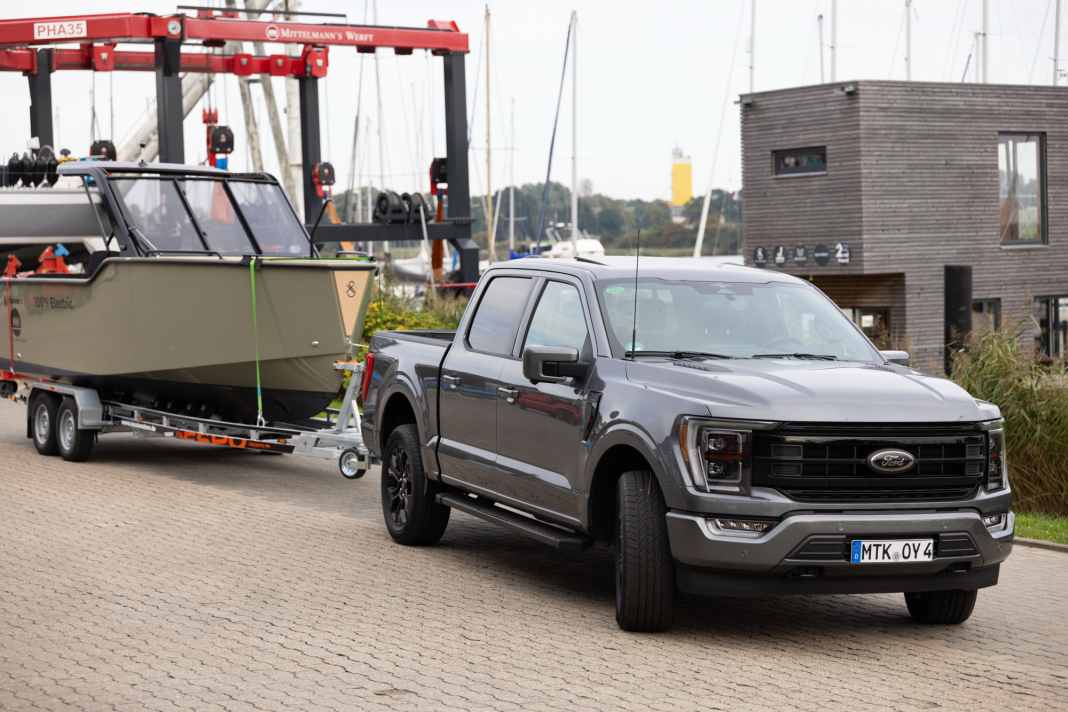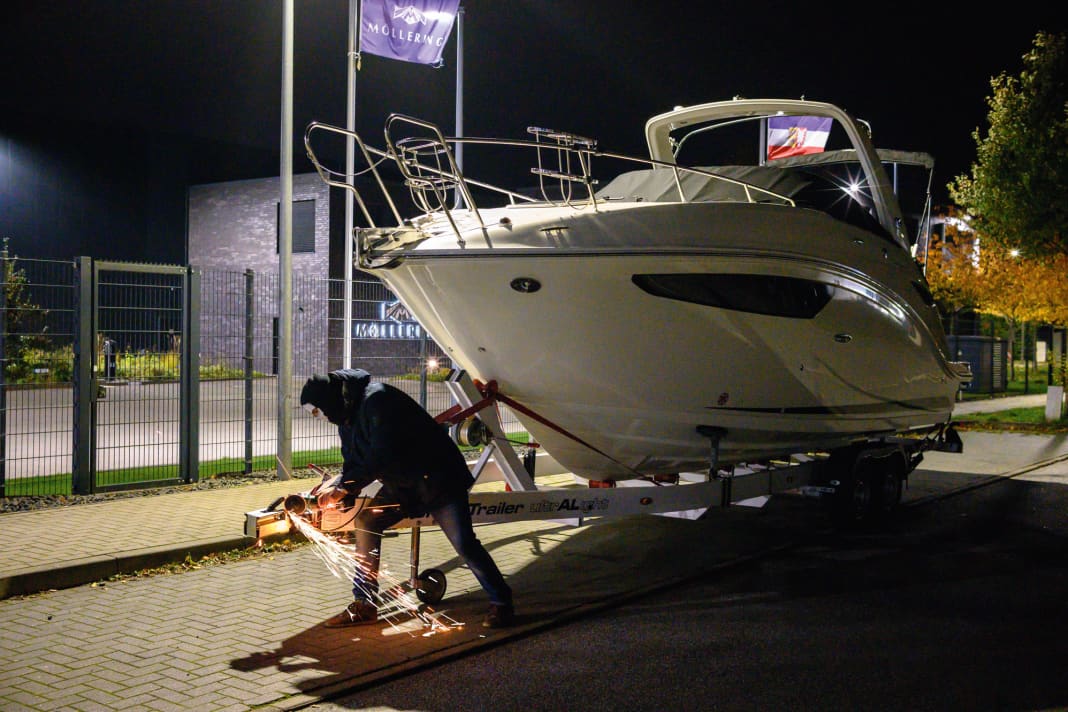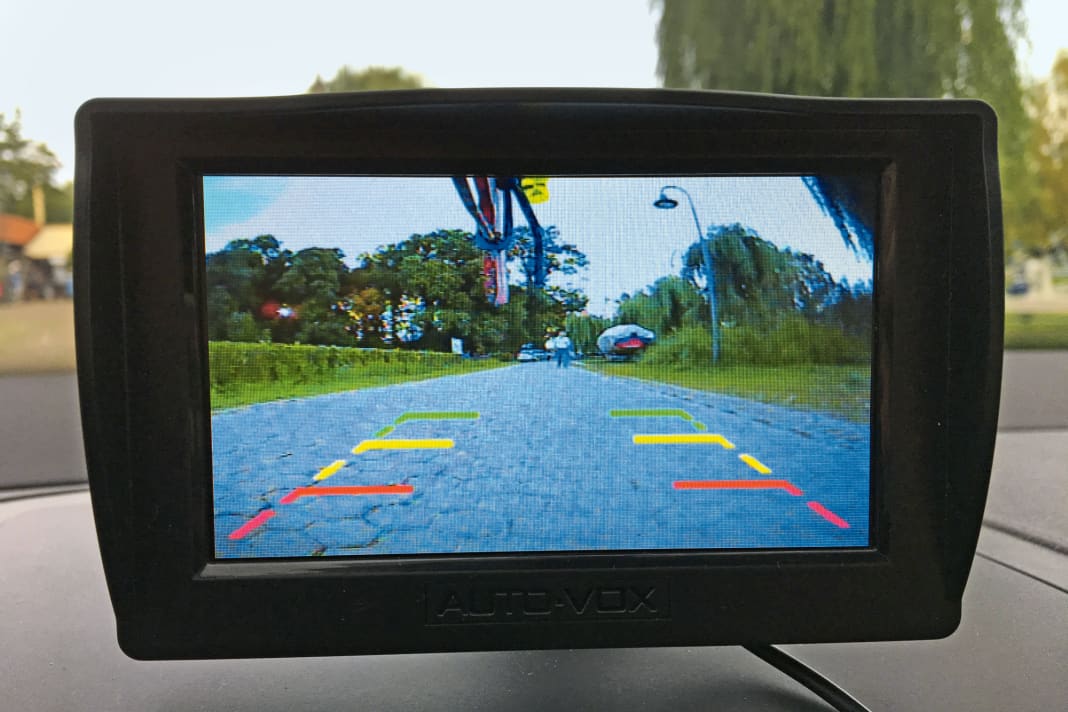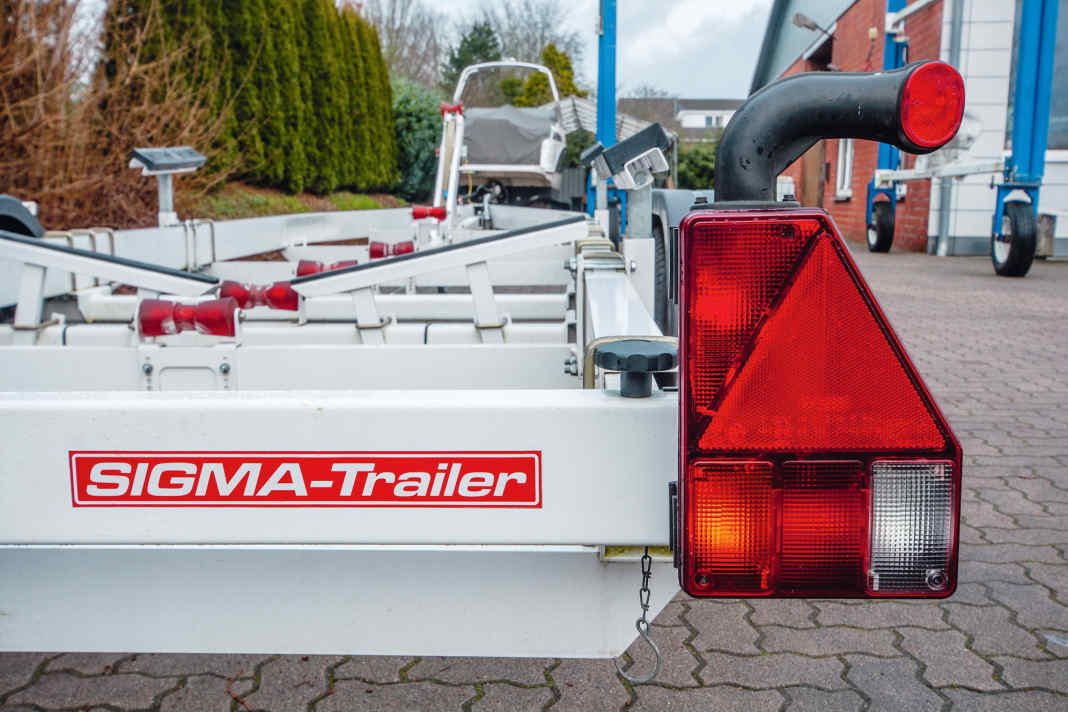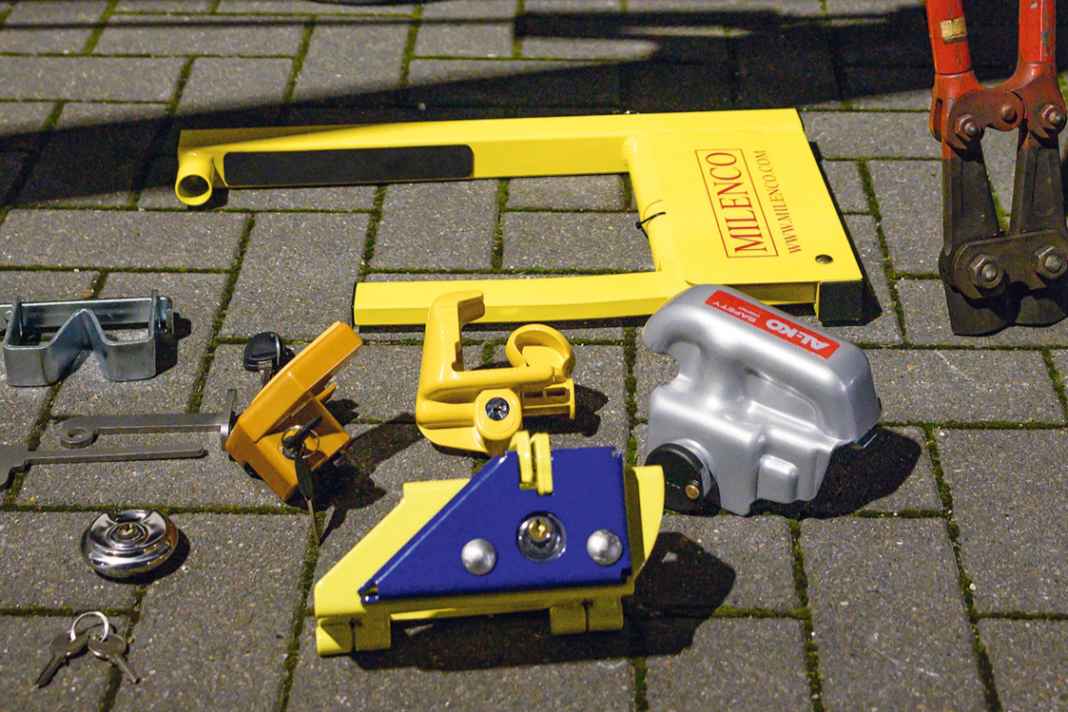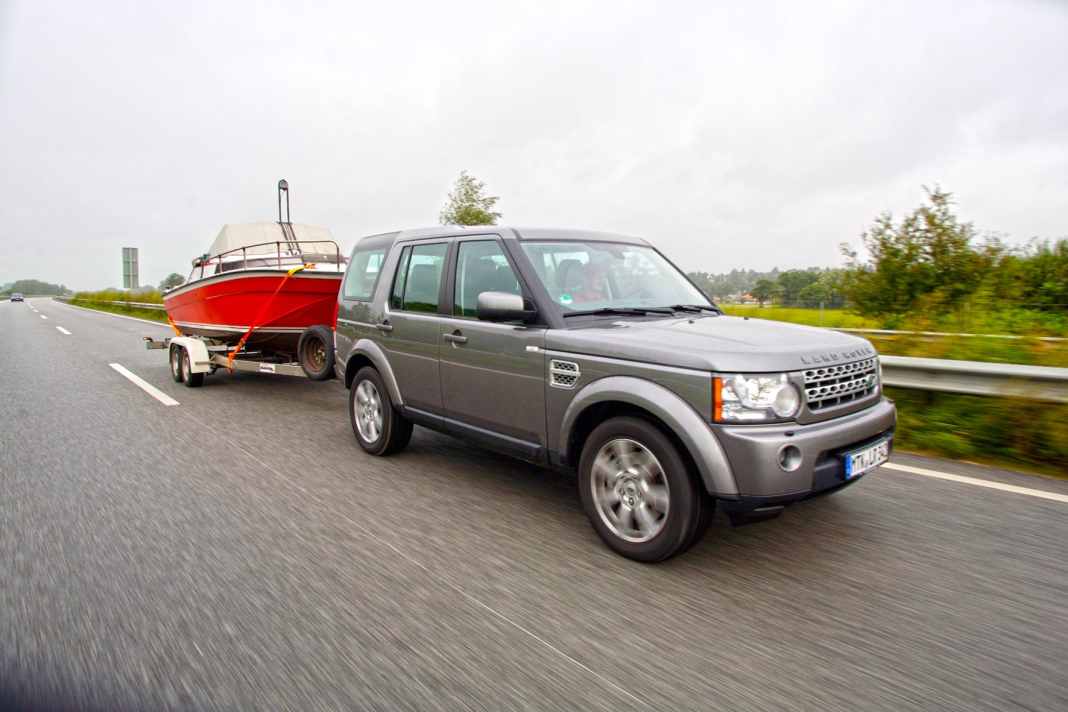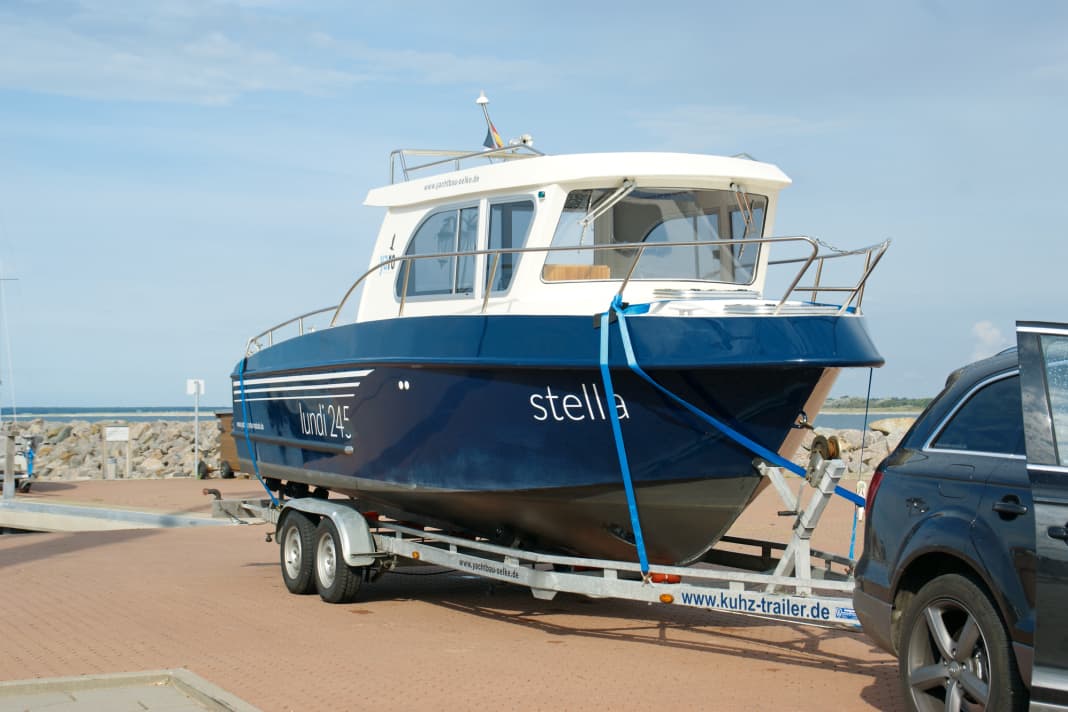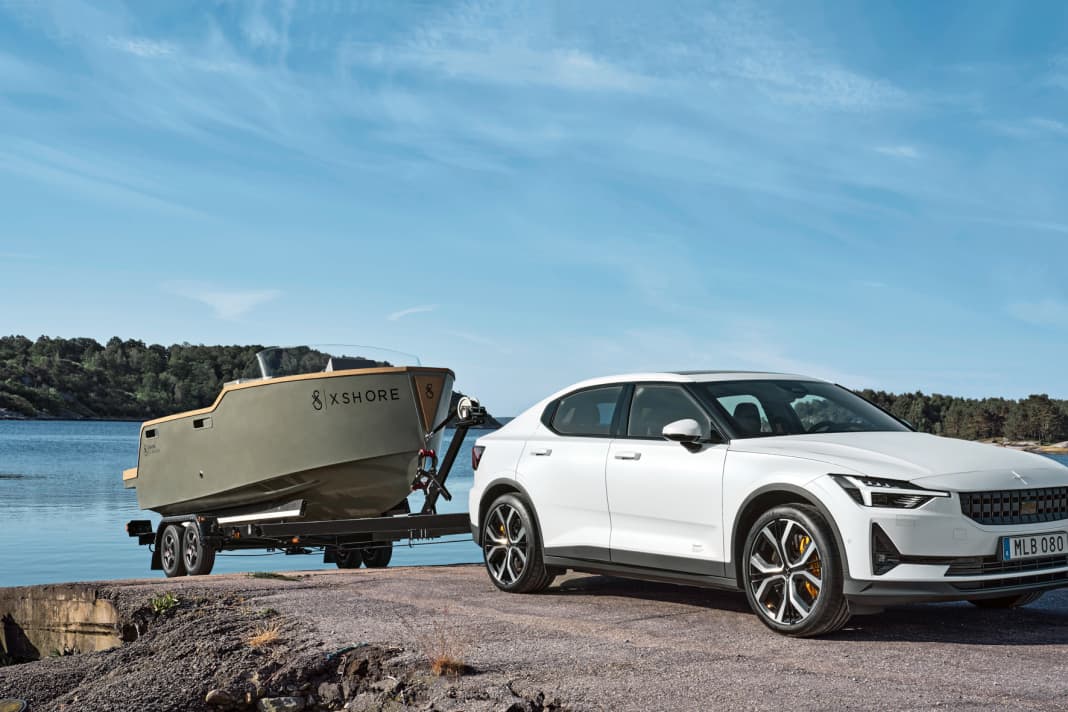Boat trailer
For many water sports enthusiasts, the boat trailer is part of the dream of owning a boat. Boat to this. Because if you don't have an unlimited amount of time, you have to rely on its services to get from one body of water to another. And that's what makes boating really attractive: being able to choose freely between water, region and land. Today the Baltic Sea, tomorrow the Mediterranean - a boat trailer makes it possible.
However, to ensure that the trailer really does bring the desired independence and no problems, it should be carefully selected and regularly maintained. BOOTE has compiled all the necessary information on the subject of boat trailers.
What is a boat trailer?
A boat trailer is a specially designed trailer that is used to transport boats from one place to another. These trailers are usually equipped with various adaptations and brackets to safely transport and secure the boat. A boat trailer can be used to transport anything from small inflatable boats to large Yachts and sailing boats. The exact type of trailer depends on the size and type of boat to be transported. What are the differences and how do you know which trailer suits which boat? What should you look out for?
A boat trailer for great independence - is that necessary?
Before these questions are answered, BOOTE addresses a question that you should ask yourself first: Do you even need a boat trailer? As described above, a boat trailer multiplies the independence and variety that you can experience with your boat. But perhaps it is not your intention to travel on different bodies of water. You have the river, lake or sea right on your doorstep - and that's where you want your boat to go, and nowhere else. To get it out of the water for winter storage or for maintenance and repair work, a slipway trailer is sufficient, which is much cheaper than a trailer, but is not roadworthy.
The budget is another point you should consider: Is there enough money for a boat trailer that fulfils all requirements? Buyers often already reach their financial limits when purchasing a motorboat, so there is hardly any money left for the trailer. Before you save on the quality or even the payload or size of the boat trailer, it's better to save a little more and postpone your dream until next season!
Your car could also throw a spanner in the works - for example, if it doesn't have a towbar. Perhaps this can be retrofitted. If not, you simply don't have the towing vehicle and should reconsider your desire for a boat trailer. Last but not least, you should of course check whether your desired boat can be trailered at all or whether it is possibly too wide or long to be transported on the road.
Which trailer goes with which boat?
If you have finally come to the conclusion that you cannot do without a trailer, it makes sense to purchase it at the same time as the boat. If you buy a used boat, many sellers offer a matching trailer at the same time. However, the right trailer can also be purchased with a new boat.
If the previous owner or dealer does not provide you with a trailer straight away, you need to do your own research to find a suitable one. It is important that the trailer, boat and towing vehicle fit together. What does this mean in practice?
Weights, loads and dimensions: What needs to be considered?
One parameter that you must pay attention to is thePermissible total weightof the boat trailer. It is made up of the unladen weight of the trailer and thePayloadtogether. In your case, the payload is the boat.
Caution: The boat will be considerably heavier than stated in the manufacturer's brochure due to the equipment and tank contents - this should be taken into account when purchasing. Accessories on the boat trailer, such as a jockey wheel, winch stand or slip trolley, also reduce the payload that is still available. If the permissible total weight of the boat trailer is exceeded, the operating licence for the entire trailer will expire!
Even with the authorisedDrawbar load of the boat trailer: This is the force that the weight of the trailer exerts vertically on the coupling of the towing vehicle. It depends on the centre of gravity of the load and can already be influenced by moving the boat forwards or backwards on the trailer. The maximum authorised drawbar load can be found in the trailer documents.
For theLoad on the towing vehicle the following rules apply:
- An unbraked trailer may weigh no more than half the gross vehicle weight of the towing vehicle, but no more than 750 kg.
- A braked trailer attached to a car may not weigh more than the gross vehicle weight rating of the towing vehicle.
- Off-road vehicles may tow a maximum of 1.5 times their authorised total weight.
- In principle, the trailer load must not exceed 3,500 kg.
- The towing vehicle also has a maximum permissible drawbar load that must be taken into account. If it is lower than that of the trailer, the lower value applies.
- In principle, vehicles with rear or all-wheel drive can pull heavier loads and offer advantages, especially when slipping on steeper slopes.
Of course, the frame size of the boat trailer must also match theDimensions of the boat fit. There should still be enough room for manoeuvre in terms of length so that the doors and tailgates of the boat can be opened even when coupled. In principle, a trailer in Europe may be up to 2.55 metres wide and 18.75 metres long. Up to three metres wide, you can usually get a special permit without any problems. However, anything more than this is critical. In most cases, it is the width of the boat rather than the boat length that pushes you to the limits.
It all sounds quite complicated - but it's not quite that bad! Most sellers provide information on which boat types their trailers are suitable for and will advise you. Even if you want to buy a used boat trailer, you can find information about the trailer type on the Internet and don't have to start your research from scratch.
Further expertise on boat trailers
In addition to the loads and dimensions that must match the boat, trailer and towing vehicle, there are other features of boat trailers that you should be aware of.
Braked or unbraked?
As mentioned above, there are braked and unbraked trailers. Which of the two types you choose should depend on how heavy the boat to be transported is. The trailer may only be unbraked up to 750 kg. If the axle load is higher (up to a maximum of three tonnes), you can still drive with the trailer - but only at a maximum speed of 30 km/h. In general, you should be careful when travelling with an unbraked trailer and, if in doubt, drive a little slower. The braking effect is delayed and it is easy for the trailer to break away or tip over when cornering if you accelerate too much.
With braked trailers, the towing vehicle does not have to provide the necessary braking power on its own, but is supported by the trailer. The trailer's brakes are triggered by a so-called overrun device in the trailer coupling. A speed limit of 100 km/h is only available for trailers with brakes. They are therefore not only safer, but also much more suitable for longer distances. The maximum speed for unbraked boat trailers is only 80 km/h.
Single or double-axle?
Another exclusion criterion for an unbraked trailer is two axles. A double-axle trailer always needs its own brake on at least one axle. What speaks in favour of a double-axle trailer and what speaks against it? Quite clearly, two axles are advantageous or mandatory above a certain boat weight. Compared to single-axle models, the double-axle trailer also offers greater safety in the event of tyre or wheel bearing damage as well as greater driving stability. However, it is also associated with higher purchase, maintenance and repair costs. In addition, a certain amount of skill is required when manoeuvring.
Steel or aluminium?
There is usually not much choice when it comes to trailer material: Most trailers are made of steel. If every kilogram counts, you can look for an aluminium trailer. This is a lot lighter, but also more expensive.
Always ready for a spin thanks to the inflatable boat trailer
Special mention should also be made of the inflatable boat trailer, which has slightly different characteristics to other boat trailers. Here too, there are various designs suitable for different inflatable boat models. Depending on whether the inflatable boat has speed tubes or inflatable keels, the type of inflatable boat trailer should be selected. Unlike other boats, inflatable boats can of course also be transported without a trailer - if you deflate them, they usually simply fit in the boot together with the outboard motor. However, the thought of having to inflate the boat again often makes you want to go for a spin. The watercraft can always be stored ready for use on an inflatable boat trailer.
What else is included in the boat trailer?
In addition to these key features of boat trailers, there are other accessories that should be scrutinised or even be available in the first place:
- Support rollers and long supports serve as lateral supports and hold the boat in position. They should always be adjustable so that their position can be adapted to the shape of the boat's hull and they do not slow the boat down when slipping.
- Keel rollers guide the boat into the water when slipping.
- Bow supports serve as a stop when loading the boat so that it always remains in the same position.
- Keel and bow stops exert securing forces during transport.
- Shock absorbers protect the material of the trailer and boat and are mandatory in Germany for trailers authorised for 100 km/h.
- A jockey wheel is important so that the trailer with boat can be moved easily even when uncoupled. A folding or pull-out mechanism is practical so that the wheel can be stowed away to save space when not in use. Make sure that the jockey wheel is solid and large enough to withstand the drawbar load of the trailer.
- Especially if you often slip alone or in waters with cross currents, a centring aid can be useful to guide the hull into the correct position on the trailer.
- With a winch, the boat can be guided downwards using a belt or rope so that the trailer does not have to be submerged too deeply in the water. It is important that the winch is designed for the weight of the boat.
- Lashing points to which straps can be hooked make it much easier to secure the load.
- A walkway offers more comfort and safety when preparing to slip and walk on the trailer.
- Wheel chocks are required to protect the trailer from rolling away on steep ramps.
- Of course, a light bar is also part of the boat trailer accessories. It should be adjustable and easy to attach and remove.
- If the weight still allows it, equip yourself with a spare wheel and an accessory box with jack and tools.
Ideally, you should buy a fully equipped trailer - this means that everything you need in terms of equipment is already included. This is not only easier for you, but also gives you peace of mind. A motley assortment of equipment may not all be able to cope with the same loads and demands and can become a source of danger.
Boat trailers from the market leaders
Boat trailers are available from numerous brands and manufacturers. Once you have an idea of which manufacturers offer good quality at a reasonable price-performance ratio, it is easier to make a decision. BOOTE presents a few brands and models with their features and benefits.
Harbeck
Harbeck is Germany's leading manufacturer of boat trailers. The family business, based on Lake Waginger in Upper Bavaria and in Switzerland, offers a wide range of trailers for a wide variety of boat types and purposes: from motorboat trailers with a patented slip system to regatta trailers for all Olympic boat classes, the Harbeck range includes everything you can imagine. In addition to private individuals, their customers include water guards, fire brigades and professional athletes. Harbecks are not only a manufacturer with the highest quality standards, but also a competent consultant for all questions relating to boat trailers and accessories.
Brenderup
At the other end of Germany, in Oldenburg, is the company Brenderup. It too specialises in the manufacture of trailers and is one of the leaders in its field. Hot-dip galvanising and additional protection of the material through passivation, certification, warranty, functionality, reliability, a wide range of models and sustainability are just some of the features that Brenderup is committed to. The company is part of the Scandinavian Brenderup Group. All trailers are developed and designed in Scandinavia.
Marlintrailer
Marlintrailer belongs to the company Sportboote-SH-Süd and is based in Baden-Württemberg. The online shop Marlintrailer.de offers a wide range of boat trailers, from inflatable boat trailers to customised trailers. A special offer from Marlin is the powder coating of the trailer in one of around 200 colours. This allows the boat and trailer to attract attention in a partner look.
Ohlmeier
The Ohlmeier company from North Rhine-Westphalia specialises in customised boat trailers. They customise the basic models from their M and MT series precisely to their customers' boats. Ohlmeier stands for the highest quality - something that is also recognised by numerous boat manufacturers who work closely with the company. A special feature of Ohlmeier trailers are the running boards next to and on the mudguards, which ensure maximum operating safety.
All formalities relating to registration, general inspection and insurance
Before you set off on your first adventure with your boat trailer, there is still some paperwork to complete. Every boat trailer needs a general operating licence (ABE for short), which is roughly equivalent to the vehicle registration document for a car. Used trailers should never be bought without an ABE - otherwise it can be difficult to get the trailer registered! And that brings us to the next point: registration. If you can present the ABE and test report from the general inspection in accordance with § 29 StVZO, you will receive a green licence plate and a certificate from the registration office. If this is not the first registration of the trailer, you must also bring the old licence plate number and the previous certificate from the registration office with you for re-registration.
Taxes do not have to be paid for a trailer that is used exclusively for the transport of sports equipment. The trailer also does not need its own insurance. Provided that all regulations have been complied with and the load has been properly secured, the insurance of the towing vehicle.
Care and maintenance of the boat trailer
Just like the boat itself, the boat trailer involves a number of care and maintenance tasks. If you want to enjoy your trailer for as long as possible and minimise costs, you should clean and maintain it regularly. It is particularly important to wash the trailer immediately afterwards if it is being slipped into salt water to prevent damage to the brakes. Older trailer models in particular require regular derusting and painting. The wheel bearings should be checked and greased regularly. Other moving parts, such as winches or supports, can be made smooth and maintained with spray oil. If, despite good maintenance and care, parts are defective and need to be replaced, you may be able to do this yourself with a little skill and the right instructions. BOOTE has numerous tips and tricks for the care and repair of boat trailers, which can be used by both hobby mechanics and newcomers to the workshop.
Check-up before every journey and after the winter break
A brief check-up should be carried out before each use: Are all screw connections tight? Are the brakes and lights working properly? Is the rope or strap for slipping intact? How old are the tyres? They should be replaced approximately every six years.
A more comprehensive inspection is recommended after the winter break. A thorough inspection is also important when buying a used trailer. You should also take a test drive with the trailer.
Before hitting the road: securing the boat properly
Once the boat trailer is ready for the road, you're ready to go - right? Not quite yet! First of all, it still has to be loaded and the load secured. And this should not be done in any way, but professionally and with approved lashing equipment. The load must be secured in such a way that nothing slips or falls off even in the event of emergency braking or sudden swerving movements. There are guidelines and regulations for this, and the straps used must also comply with a DIN standard and must not be damaged. The propeller of a boat must always be covered by a protective cover as it is a source of danger.
Before travelling abroad with your towing vehicle, you should find out what special rules apply there that do not apply here in Germany. You should always carry an ABE, a certificate from the registration office and a test report from the main inspection with you.
A boat trailer is worthwhile
Conclusion: A boat trailer definitely brings more variety and possibilities into the lives of motorboat enthusiasts. The cost of the purchase may also soon be recouped, as you can save money on mooring space. On the other hand, of course, you also need somewhere to park the trailer.
Many boat owners find the idea of travelling and manoeuvring with a metre-long towing vehicle daunting. Some water sports enthusiasts also have respect for slipping. But especially when it comes to launching and retrieving, having your own trailer has clear advantages: you are your own boss and don't have to follow the crane service's schedule. This gives you more time for the essentials: boating.
And ultimately, it's all just a matter of practice - both driving and slipping with the boat trailer. If you are still very unsure, you can take a trailer driving course at the ADAC, for example.
The great freedom on the water is definitely even greater if you can also move your boat on the roads. This is usually only possible with your own trailer without any inconvenience or loss of time.
